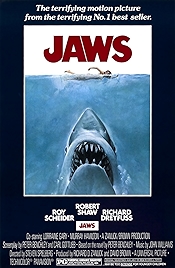A movie for every day of the year – a good one
18 October
Moby-Dick published, 1851
On this day in 1851, Herman Melville published what is considered to be one of the great American novels, about the elemental struggle between one Captain Ahab and the whale that once bit off his leg.
The story is told from the viewpoint of Ishmael, and “Call me Ishmael”, its opening sentence, has become one of the most recognised opening lines in literature.
The book is based on two actual events. One took place in 1820, when a sperm whale rammed and sank the Essex, a whaler that was in hot pursuit of it. The other was the killing of a mighty bull whale nicknamed Mocha Dick, an albino so called because he frequented the waters off the Chilean island of Mocha, rather than on account of his cocoa sprinkled head.
Mocha Dick had been harried by whalers from at least 1810, and it was in the late 1830s that he was killed (according to Jeremiah Reynolds’s book Mocha Dick: or the White Whale of the Pacific).
But back to Ahab, a strict, dour man with 40 years of whaling under his belt, whose obsession with the giant mythical beast takes on a biblical aspect as he leads the crew of his ship, the Pequod, to their deaths in his pursuit of the ultimate quarry.
Perhaps the same relationship can be seen between the book and its author – Melville believed it was his masterwork; the critics did not, and so the author well known for books such as Typee and Omoo started a slide towards literary oblivion, becoming rescued only by the Modernists after the First World War who saw his discursive, eclectic, jackdaw style as a precursor to experiments they were conducting.
Jaws (1975, dir: Steven Spielberg)
Jaws is the Moby-Dick of the screen, the tale of a captain obsessed with a big maritime beast translating easily from one medium to another and one species to another. Doing the translating were director Steven Spielberg and Carl Gottlieb, who rewrote a lot of Peter Benchley’s original screenplay, not forgetting Robert Shaw as the crazed Quint, Ahab in greasy modern garb.
Telling the story of a giant white shark that terrorises a holiday town, and the three men who assemble, with varying degrees of reluctance, to kill it, Jaws is the story of one man’s obsession and another man’s fear (the third man, Richard Dreyfuss, being little more than an on-screen narrator, our Ishmael).
It’s also notable for being one of the few Spielberg films with a countercultural bent. Ironically, it’s considered to be the film that changed Hollywood, sounding the death knell for those vaguely countercultural films of the early 1970s and signalling the arrival of the era of the summer blockbuster, the event movie, the movie that opens on every screen in the world simultaneously (finances permitting).
Spielberg learnt a vital lesson from his film Duel, in which lone motorist Dennis Weaver is monstered by a gigantic truck, the driver of which is never seen. We don’t see much of the shark in Jaws either, and the film is all the better for it.
And it’s why anyone who has ever seen the film has a far more complicated relationship with swimming in the sea than they used to, even in waters where you’d never find sharks – the fact that there isn’t a shark there doesn’t mean there isn’t a shark there, if you follow me.
Why Watch?
- The John Williams score – der duh
- Robert Shaw’s Indianapolis speech, largely written by him
- “You’re going to need a bigger boat”
- How many films lend their names to Bond villains?
Jaws – at Amazon
I am an Amazon affiliate
© Steve Morrissey 2013

